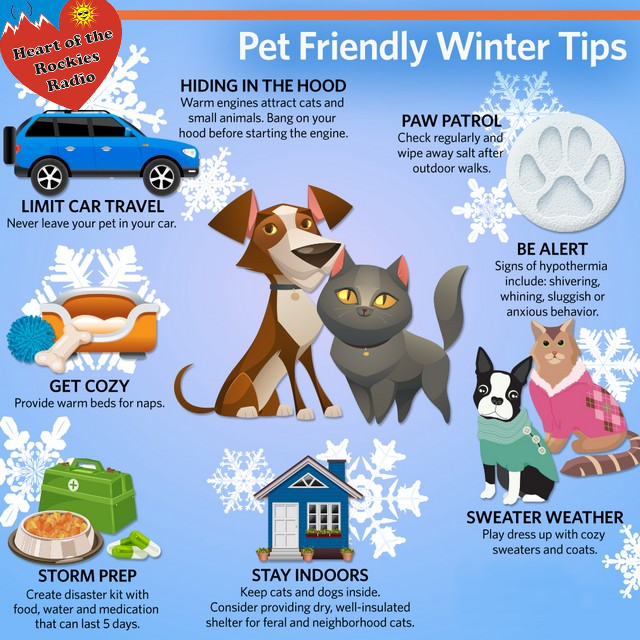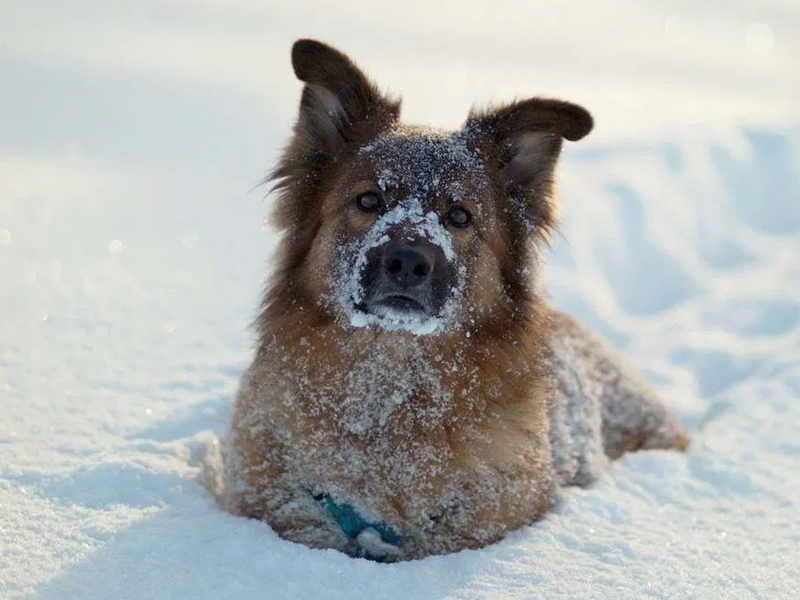Winter in Colorado can be extreme, and cold weather can be especially hard on our pets. Here are a few tips to help keep them safe this winter.

Know Your Dog’s Limits
Some dogs are more susceptible to the cold than others. Short-coated, thin, elderly, or very young dogs get cold more quickly. If your dog enjoys being outdoors, consider outfitting them with a snazzy sweater or coat to keep them warm. Hypothermia and frostbite pose major risks to dogs in winter, so remember, if it is too cold for you, it is probably too cold for your dog.
Check Under The Hood
Cats often sleep in the wheel wells of cars during the winter months to keep warm. Prevent injuries by checking under your vehicle, or honking the horn before starting your car. This will give your cat a chance to escape before the car starts.
Wipe Their Paws
During winter walks, your dog’s paws can pick up all kinds chemicals like salt, antifreeze, and de-icers. Be sure to wipe off your dog’s paws when you return from walks to prevent them from licking it off and becoming sick. And while wiping off your dog’s paws, check for signs of injury, such as cracked or bleeding paws.
Use A Leash
Snowfall can disguise recognizable scents that would normally help your pet find their way home. During the winter, keep your dogs leashed on walks and, just in case you are separated from your pets, make sure their collars have up-to-date contact information and they are microchipped.
Leave Them Home
We know you love taking your dogs everywhere with you, but cold cars every bit as life threatening as summer heat. Only take your pets in the car when absolutely necessary, and never leave them unattended.
Be Seen
Because of the longer winter nights, many of us are forced to walk our dogs in the dark. Keep yourself and your dog are safe by wearing reflective gear, and keep them close when walking on the street.
Give Them Shelter
If your pets live outdoors primarily, bring them indoors during sub-zero temperatures, and make sure they have a dry, draft-free shelter that is large enough to allow them to sit and lay down comfortably, but small enough to conserve body heat. Ideally, the floor should be raised above the ground, and and the doorway covered to provide a wind block.
Plastic Is Better Than Metal
Pets who spend a lot of time outside need more food and water to replace energy lost from trying to stay warm. It’s better to use plastic dishes instead of metal as your pets’ tongue can become frozen to metal.
Be Prepared
Winter in Colorado can be extreme. Make sure you have emergency plans that include your pets. Keep an emergency kit with enough food and water to last your pets at least five days. Most likely you will never need it, but if you do, you will be thankful you planned ahead!





